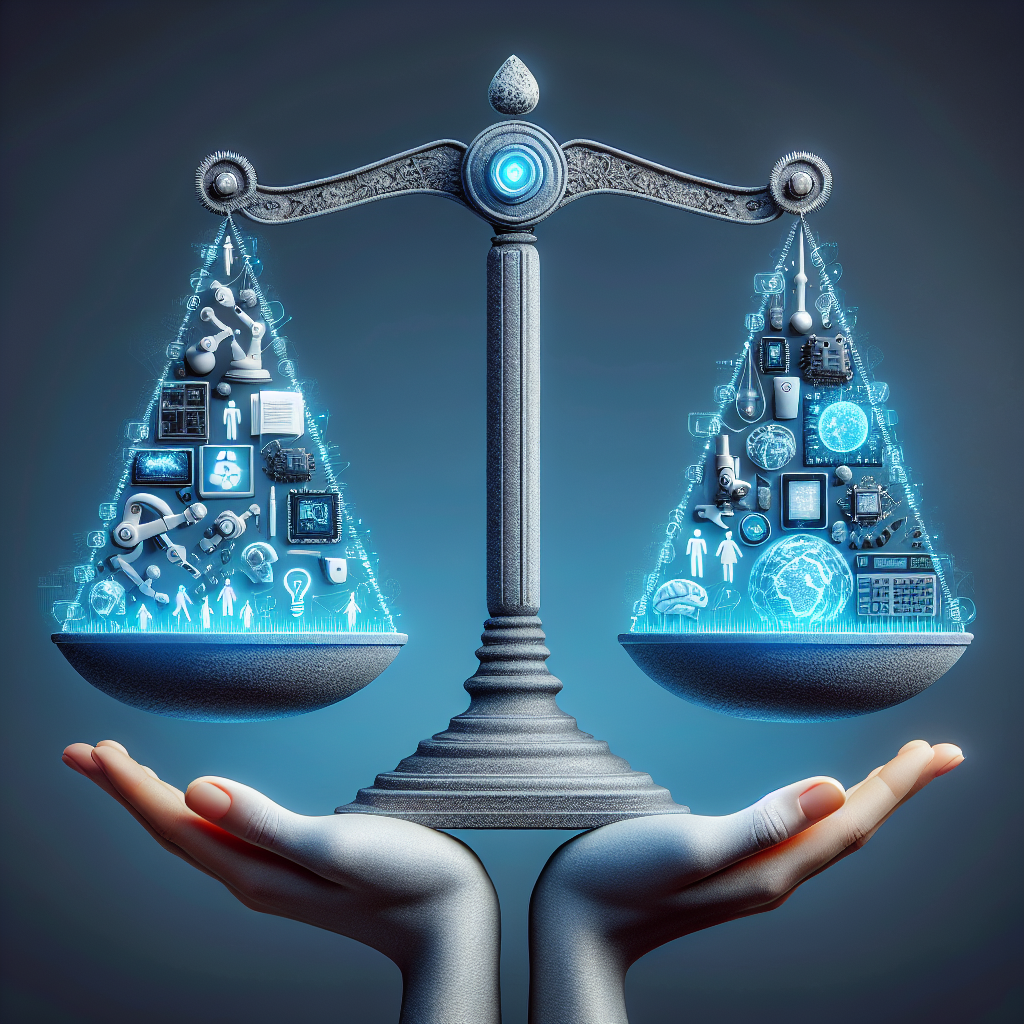Ethical AI: Balancing Innovation with Humanity’s Well-being
In the rapidly evolving landscape of artificial intelligence (AI), the line between groundbreaking innovation and ethical responsibility is increasingly blurred. As AI technologies become more integrated into our daily lives, from personalized healthcare to automated decision-making systems, the question of how to balance technological advancement with humanity’s well-being is more pressing than ever. This article delves into the core of Ethical AI, exploring its importance, challenges, and the initiatives being taken to ensure that AI development aligns with the greater good of humanity.
The Importance of Ethical AI
Ethical AI refers to the practice of designing, developing, and deploying AI technologies in a manner that respects human rights and values. It encompasses a broad range of ethical considerations, including privacy, security, fairness, transparency, and accountability. At its core, Ethical AI aims to prevent harm, ensure that AI systems are used for beneficial purposes, and safeguard against the misuse of AI technologies.
The imperative for Ethical AI arises from the potential for AI to impact every aspect of human life. AI systems are making decisions that affect people’s jobs, personal lives, and societal roles. Without a strong ethical framework, these systems could perpetuate biases, make opaque decisions, or operate without accountability, leading to significant negative implications on society’s fabric.
Challenges in Ethical AI
The path to achieving Ethical AI is fraught with challenges. One of the primary hurdles is the inherent bias in AI algorithms. AI systems learn from vast datasets, and if these datasets contain biases, the AI’s decisions will reflect those biases. This can lead to unfair outcomes, particularly in sensitive areas such as criminal justice, hiring practices, and loan approvals.
Another significant challenge is ensuring transparency and accountability in AI systems. Many AI algorithms are complex and opaque, making it difficult for users to understand how decisions are made. This “black box” nature of AI can erode trust and hinder accountability, making it challenging to identify and rectify errors or biases in AI systems.
Additionally, the rapid pace of AI development outstrips the development of regulatory frameworks, leading to a governance gap. Without adequate governance, there is a risk that AI technologies could be deployed without sufficient consideration of their ethical implications.
Towards a Framework for Ethical AI
Recognizing the challenges and the stakes involved, various stakeholders, including governments, industry, academia, and civil society, are working towards establishing frameworks for Ethical AI. These frameworks typically encompass principles such as fairness, accountability, transparency, and respect for user privacy and autonomy.
For instance, the European Union has drafted ethics guidelines for trustworthy AI, emphasizing the need for AI systems to be lawful, ethical, and robust. Similarly, leading technology companies have established their own principles for Ethical AI and are investing in research to address ethical challenges in AI development.
However, creating and implementing an Ethical AI framework is only part of the solution. It’s also crucial to foster a culture of ethical awareness among AI researchers, developers, and users. This involves education and training, as well as ongoing dialogue among all stakeholders to navigate the ethical dilemmas posed by AI technologies.
Ethical AI in Practice
Putting Ethical AI into practice involves several concrete steps. Firstly, it requires the development of AI systems that are transparent and explainable, allowing users to understand and trust AI decisions. Secondly, it necessitates the implementation of robust data governance practices to ensure that AI systems are trained on unbiased, representative datasets. Thirdly, there must be mechanisms for accountability, enabling the identification and correction of unethical AI behaviors.
Moreover, engaging with diverse stakeholders, including those who are most likely to be affected by AI technologies, is essential for identifying potential ethical issues and developing more inclusive AI solutions. This participatory approach can help ensure that AI technologies reflect a wide range of human values and perspectives.
FAQs on Ethical AI
Q: Why is Ethical AI important?
A: Ethical AI is crucial for ensuring that AI technologies are developed and used in ways that respect human rights and values, prevent harm, and contribute positively to society.
Q: What are the main challenges in achieving Ethical AI?
A: The main challenges include addressing inherent biases in AI systems, ensuring transparency and accountability, and developing adequate regulatory frameworks.
Q: How can we ensure AI systems are ethical?
A: Ensuring AI systems are ethical involves developing transparent and explainable AI, implementing robust data governance practices, establishing accountability mechanisms, and engaging with diverse stakeholders.
Q: Are there any existing frameworks for Ethical AI?
A: Yes, there are several frameworks for Ethical AI, including the European Union’s ethics guidelines for trustworthy AI and principles established by leading technology companies.
In conclusion, balancing innovation with humanity’s well-being in the development and deployment of AI technologies is a complex, yet essential endeavor. By prioritizing ethical considerations and engaging in a collaborative, multidisciplinary effort, we can harness the immense potential of AI to benefit society while mitigating the risks. As we continue to explore the frontiers of artificial intelligence, let us ensure that our journey is guided by a commitment to upholding the highest ethical standards, reflecting our collective responsibility towards a future where technology serves the greater good of all humanity.

